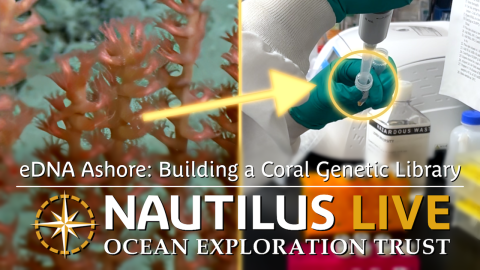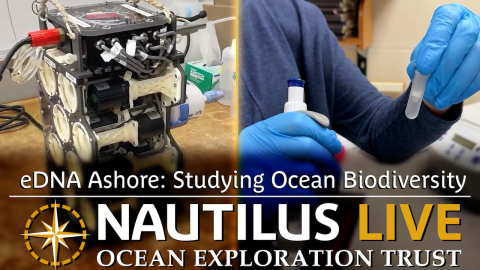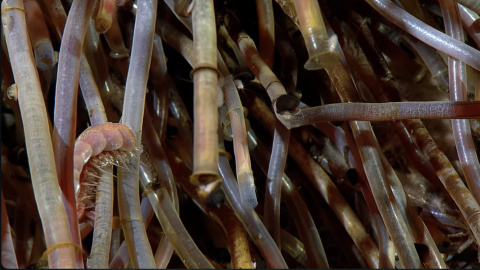Meet Ocean Explorer Samantha-Lynn Martinez
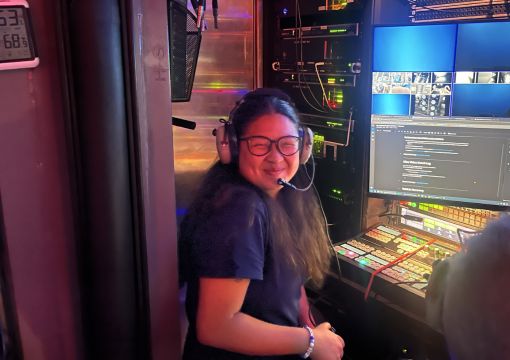
OET proudly welcomes Samantha-Lynn Martinez to the Corps of Exploration as part of the Science & Engineering Internship Program. This internship program supports community college, undergraduate, and graduate students in building professional workforce experience and exploring STEAM-related careers that connect to research themes like robotics, ocean science, education, and exploration. Samantha-Lynn is joining E/V Nautilus for our NA165 expedition as a video engineering intern.
We sat with her to learn more about this experience at sea and the path that led her to Nautilus.
Describe your role with OET
As a video engineer intern, I work within the E/V Nautilus control van to operate cameras mounted on remotely operated vehicles (ROVs) and throughout the vessel. The team inside the control van must work together to ensure safe launches and recoveries of instruments. The ROV cameras serve as the eyes into the water for our scientists and pilots, and we must stay in constant communication with each other as we explore the deep.
Can you tell us a little about your background? What influenced you as a child?
I grew up in Seattle after moving from the Philippines when I was a toddler. My roots in the South Pacific and the Pacific Northwest of the US taught me how to enjoy and care for the marine environment, which plays a massive role in what I find myself doing today! I also loved watching shows on Animal Planet and National Geographic as a kid (Bindi the Jungle Girl, The Incredible Dr. Pol, River Monsters, to name a few) so it is no surprise that I am a HUGE fan of natural history media and the impact it has on budding wildlife/nature enthusiasts.
When you were a kid, what did you want to be when you grew up?
I wanted to be a veterinarian! But after a rather upsetting discovery that I’m allergic to cats, I thought my dreams of working with animals were over. Slowly but surely, I discovered that there are MANY other ways I could engage with and help animals and wildlife in general. That discovery led me down a path to become a wildlife and marine biologist (who also happens to LOVE playing with cameras).
What would you consider to be your greatest challenge entering this field?
Aside from mathematics, physics, and big numbers in general not being my cup of tea in school, my greatest challenge entering this field is trusting myself and my experience enough to pursue big opportunities—aka, hyping myself up to jump for things outside of my comfort zone.
Especially when it comes to the science communication part of my career, almost all of it is self-taught, strictly through experience rather than classrooms or degree-granting programs. Even applying to the Video Engineering Internship felt like a HUGE jump for me, as someone who 1) didn’t pursue film in a classroom setting for my undergraduate degree and 2) only shot video for fun or smaller gigs up until now.
Learning to trust myself and my skills is forever a challenge, but I hope to learn new ways of approaching this all-too-daunting mindset as I progress throughout my career!
Do you have any advice for someone looking to follow a similar path?
Skillset-wise, practice writing as much as you can! It will help with applications for internships, grants, and fellowships and, ultimately, with general science communication tasks in the long run. This applies to anyone, from scientists to science communicators. By sharing a clear understanding of the work that you do (or wish to do) with other people, your objectives become much more feasible, and it is easier to gain financial or general support!
Mindset-wise, a huge part of this field is getting over yourself. Your biggest enemies are your expectations, and being okay with discomfort will let you grow much more than you might initially anticipate. Come to terms with the fact that life WILL throw its curveballs, and things will seldom pan out the exact way you imagined. Rather than having this unknown factor scare you, please take it as an invitation to explore opportunities as they arise and believe that the best is always yet to come. Almost 80-90% of the things I do now are opportunities I did not plan/account for years/months in advance. Be open to exploring things as they pop up, or keep in touch with those who share opportunities if the timing does not work out at first.
What's next for your ocean studies and career?
Up next, I aim to complete my undergraduate degree in Ecology, Evolution, Conservation Biology and Marine Biology from the University of Washington in December of 2024. While many plans are up in the air after graduation, I look forward to working freelance on wildlife research, science communication, and education projects throughout 2025. These exciting projects will feature TONS of different wildlife/natural history stories, from the local marine life of the Salish Sea, to the fast and furious hummingbirds of the Colombian Andes!
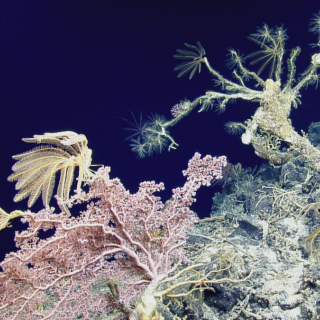
E Mamana Ou Gataifale II - American Samoa
American Samoa is the southernmost U.S. territory, centered in the South Pacific, 2,300 miles southwest of Hawaiʻi, and 1,500 miles northeast of New Zealand. It is home to the cradle of Polynesia’s oldest culture.
